10 Database Examples in Real Life
You might not realize it, but database examples are everywhere. Whether or not you know very much about them, their effect on your daily life is extensive. From weather applications to the movies you watch online, databases support nearly every service you use on a regular basis.
To show you just how ubiquitous databases are, here are a few of the more well-known database examples and descriptions on how they enhance your day-to-day life. The most popular database server in the Web Hosting Industry, MySQL, is prevalent in virtually every example listed below.
But first, what exactly is a database?
What is a Database?
A database simply refers to a set of related data organized in a way that it can be easily stored, changed, and accessed at any time.
Databases underpin nearly every program you use. If a program saves your data in any way (e.g., username and password), you can be sure a database is deployed somewhere.
There are various ways in which databases can be organized. One of the most popular types of databases today is relational databases, consisting of rows and columns in a series of tables. Most of these databases use SQL for querying data (MySQL being one of the most popular database examples), but some also rely on other languages and are then referred to as NoSQL.
How Does a Database Work?
Relational databases can be imagined as many tables, each containing unique information stored in rows and columns.
For example, your row could contain all the information you need about a particular customer (name, email, phone, company). The column would be that specific type of information (company name) across all customers. If some customers work at the same company, you could also create a database table with all the relevant company information. In this way, you only have to specify it once and can change it later everywhere at the same time.
To interact with your database, you can use special software called a database management system (DBMS), of which there exist lots of varieties, depending on your needs.
10 Database Examples You Regularly Use
Here are 10 popular real-world database examples, from gaming to eCommerce, to show you how versatile databases can be.
1. On-Demand Online Video Streaming

Online streaming services, such as Hulu and Netflix, use databases to keep track of which TV shows and movies are available and your viewing preferences, so it can provide better watching recommendations every time you log in to the service. As you can imagine, streaming platforms move around petabytes of data at any given time, which they then need to organize and analyze. Hulu, for example, chose Apache Cassandra, one of the NoSQL distributed databases, for those needs because of its scalability, availability, and performance.
2. Social Gaming
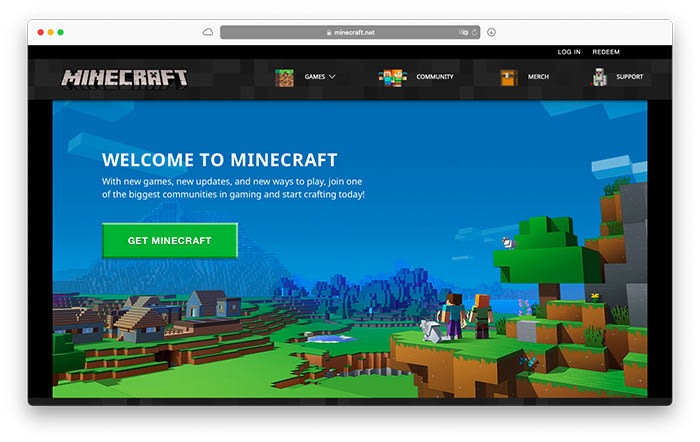
Gaming done across social networks is extremely data-intensive. Gathering individual player information from around the globe and serving it to other players on-demand requires high availability database software.
One example is the popular Game of Thrones Ascent, a free role-playing game launched by Disruptor Beam based on the hit HBO series Game of Thrones. Their Percona Server-based database solution helped them eliminate data bottlenecks during high-usage periods.
With decentralized gaming on the rise, individual gaming servers are also becoming more popular today. Hypixel was included in the Guinness World Records for the most popular independent gaming server. Minecraft, one of the most popular games of all time, allows users to host or connect to other servers to play in a multiplayer mode.
See our handy guide on How to Create a Minecraft Server on CentOS 7 and get gaming today.
3. Personal Cloud Storage
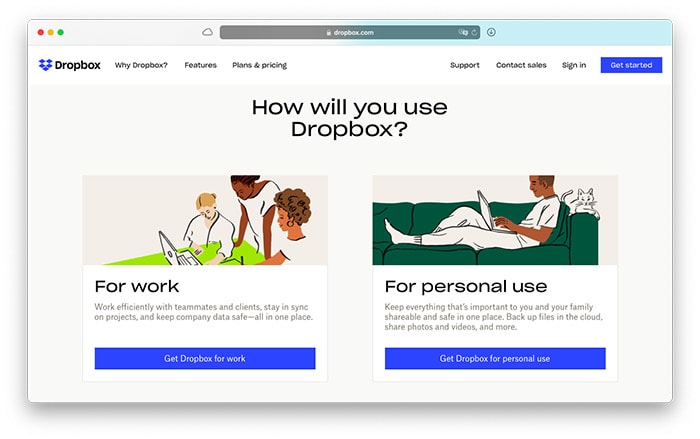
If you save photos or documents to your smartphone or tablet, or even just to any online backup solution, your data is being transferred to the cloud, a large central storage environment, where just a small portion of space is dedicated to you.
Dropbox, Google Drive, Microsoft OneDrive, and iCloud are just some examples of personal cloud storage services available to you. All of them use complex data models and powerful data warehouses to ensure your data is stored securely and is available to be called upon at a moment’s notice, regardless of where you are.
4. Sports

Fan participation in national sports doesn’t just utilize the power of the database; it depends on it. From fantasy football leagues to March Madness brackets, the sports industry depends on massive cloud databases and data collection to keep track of everything that’s going on.
Such databases store and analyze player statistics, game performances, injury reports, and more — always calculating the odds of a win on a weekly basis.
5. Finances
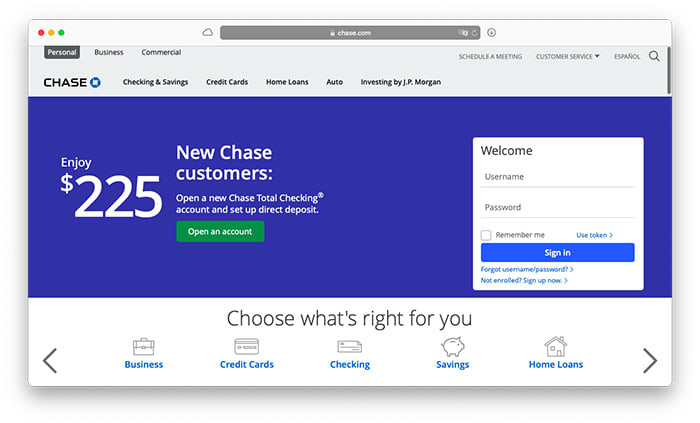
From the stock market to your local bank, databases are abundant across the financial world. Everywhere information needs to be saved and reused, a database is involved, whether it’s your checking account or the price of gold at any given moment.
You can imagine that tracking the vast amount of information behind the global daily transactions requires extremely powerful and secure databases. Financial businesses also use models that analyze collected data to predict future activity.
6. Government Organizations

Governments worldwide are constantly collecting our data for various reasons, such as research, defense, legislation, and humanitarian purposes.
Since the information is highly sensitive, government organizations are often looking for a database designed to handle data for all different purposes as safely as possible. The data is then collected, stored, and analyzed using powerful and far-reaching database services.
7. Social Media
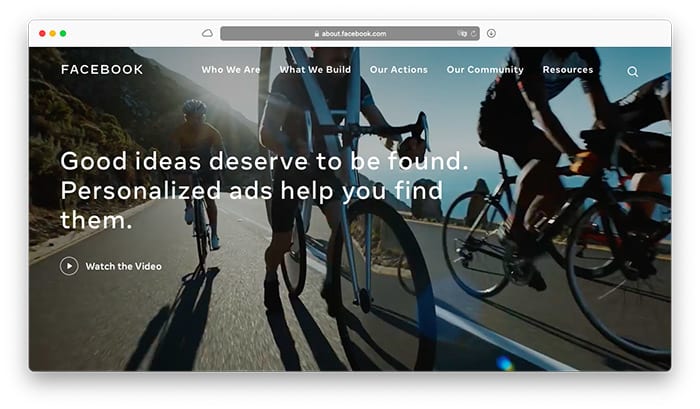
Every social media platform stores an abundance of user information in databases used to recommend friends, businesses, products, and topics to you (the end user). This cross-referencing of data is immensely complex and uses highly reliable and capable database software.
The choice for the social media database software can range widely. While some companies prefer NoSQL databases, Facebook, for example, still successfully runs MySQL in its data centers.
8. eCommerce

Any online organization that sells its products or services on a platform such as WooCommerce has to use a database to operate properly. In this case, databases help organize products, pricing, customer information, and purchasing history.
The eCommerce store owner can then leverage their database to recommend other potential products to customers. This data would be stored in highly secure databases, protected by the standards set through PCI Compliance.
9. Healthcare

Doctor’s offices and healthcare organizations store extensive amounts of patient data for easy accessibility. The databases behind this collection of information are massive, with complex data structures and security protecting sensitive data. All of these organizations have to ensure they comply with HIPAA standards for data management.
Healthcare.gov, for example, relies on NoSQL databases to manage their health insurance information.
10. Weather
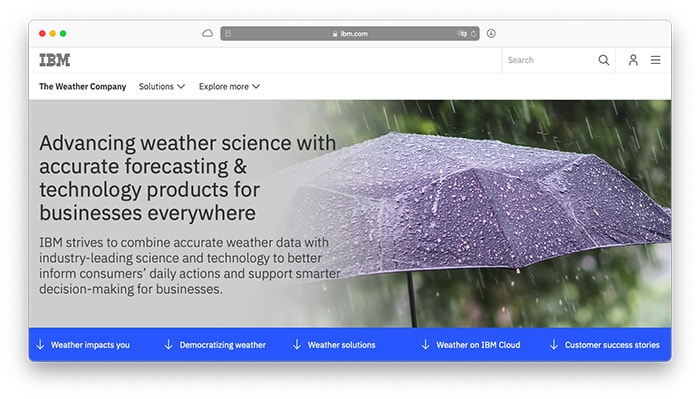
Predicting the weather across the globe is incredibly complex. Weather organizations use prediction models that depend on various factors, all gathered, stored, and analyzed within databases. The databases allow the weather data to be always accessible and easily deliverable to your local TV station or smartphone app.
The Weather Company, for example, takes in over 20 terabytes of data per day. The company has used several databases to support this torrent of information, including MySQL, Microsoft SQL Server, Cassandra, and more.
Consider Liquid Web Databases Too!
Liquid Web's VPS Hosting (Virtual Private Servers) and Dedicated Hosting (traditional bare-metal servers) solutions are two perfect examples of products running on databases to deliver outstanding value. They are designed specifically for entrepreneurial businesses, developers, freelancers, and digital agencies that need to manage lots of data securely and quickly.

Liquid Web
Liquid Web powers online content, commerce, and potential for SMB entrepreneurs and the designers, developers and digital agencies who create for them. Sign up for our newsletter to stay up to date with our latest content.
Keep up to date with the latest Hosting news.




